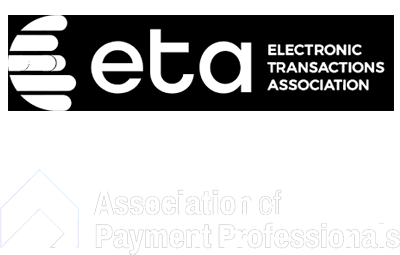07 Sep

Credit card processing is a crucial aspect of any business that accepts card payments. With so many credit card processors available in the market, choosing the right one can be overwhelming. In this article, we will explore the key factors to consider when selecting a credit card processor, evaluate important features, and identify the top credit card processors worth considering. By the end of this article, you will have the necessary knowledge and insights to make an informed decision for your business.
Understanding Credit Card Processing
Before diving into the selection process, it’s important to have a basic understanding of credit card processing. The process involves the authorization, settlement, and funding of credit card transactions. The authorization verifies the cardholder’s details and the availability of funds, while settlement involves transferring the funds to the merchant’s account. Understanding these fundamentals will help you assess the capabilities of different processors.
Credit card processing is a crucial aspect of modern commerce. It allows businesses to accept payments from customers using credit cards, providing convenience and flexibility. The process begins when a customer makes a purchase using their credit card. The cardholder’s information, including the card number, expiration date, and security code, is securely transmitted to the payment gateway.
The payment gateway acts as a bridge between the business, the customer’s credit card issuer, and the processor. It encrypts the transaction information to ensure its security during transmission. Once the information reaches the credit card processor, it undergoes a series of checks to verify the cardholder’s details and the availability of funds.
The verification process involves contacting the cardholder’s bank or credit card issuer to confirm that the card is valid and has sufficient funds for the transaction. This step is crucial in preventing fraudulent activities and ensuring that the business receives payment for the goods or services provided.
Once the authorization is obtained, the settlement process begins. During settlement, the funds from the transaction are transferred from the cardholder’s bank or credit card issuer to the merchant’s account. This transfer typically takes a few business days to complete, depending on the payment processor and the banking system.
Understanding the basics of credit card processing is essential for businesses to make informed decisions when choosing a processor. Different processors offer various features and capabilities, such as support for different types of cards, integration with other systems, and advanced security measures. By understanding the fundamentals, businesses can assess these features and select a processor that best meets their needs.
The Basics of Credit Card Processing
In its most basic form, credit card processing requires a merchant account, a payment gateway, and a card reader. The merchant account is where the funds from the transactions are deposited, while the payment gateway securely transmits the transaction information between the business, the customer’s credit card issuer, and the processor. The card reader can be a physical device or a virtual terminal that allows businesses to accept card payments.
A merchant account is a type of bank account that allows businesses to accept credit card payments. It acts as an intermediary between the business and the customer’s credit card issuer, facilitating the transfer of funds. When a customer makes a purchase, the funds are first deposited into the merchant account before being transferred to the business’s regular bank account.
A payment gateway is a secure system that handles the transmission of transaction information between the business, the customer’s credit card issuer, and the processor. It encrypts the data to protect it from unauthorized access and ensures that it reaches the appropriate parties securely. Payment gateways are essential for online businesses that process card-not-present transactions, where the customer’s card is not physically present during the transaction.
Card readers are devices that allow businesses to accept card payments in-person. They can be physical devices, such as card terminals or mobile card readers, or virtual terminals that are accessed through a computer or mobile device. Card readers read the information stored on the customer’s credit card and transmit it to the processor for authorization and settlement.
How Credit Card Processing Impacts Your Business
Choosing the right credit card processor can have a significant impact on your business. A seamless and secure payment process ensures a positive customer experience and can contribute to higher customer satisfaction and loyalty. On the other hand, a subpar credit card processor can lead to declined transactions, slow processing times, and potential security risks.
With the increasing popularity of cashless transactions, credit card processing has become a crucial aspect of business operations. Customers expect businesses to offer multiple payment options, including credit cards, to cater to their preferences and convenience. By providing a smooth and efficient payment process, businesses can enhance their reputation and attract more customers.
A reliable credit card processor ensures that transactions are processed quickly and accurately, minimizing the risk of declined transactions. Slow processing times can lead to frustration for both the business and the customer, potentially resulting in lost sales and a negative impact on the overall customer experience.
Security is another critical aspect of credit card processing. With the rise of cybercrime and data breaches, businesses must prioritize the security of their customers’ payment information. A reputable credit card processor implements robust security measures, such as encryption and tokenization, to protect sensitive data from unauthorized access. This not only safeguards the business and its customers but also helps maintain compliance with industry regulations.
In conclusion, credit card processing is a complex yet essential process for businesses. Understanding the fundamentals of credit card processing, including the authorization, settlement, and funding of transactions, allows businesses to make informed decisions when selecting a processor. By choosing the right processor, businesses can provide a seamless and secure payment experience for their customers, leading to higher customer satisfaction and loyalty.
Key Factors to Consider When Choosing a Processor
When evaluating credit card processors, several key factors should influence your decision. These include processing fees and rates, types of transactions supported, and security measures and fraud protection.
Processing Fees and Rates
Processing fees and rates can vary significantly among different processors. It’s essential to understand the fee structure and assess how it aligns with your business’s transaction volume and average ticket size. Consider whether the processor charges a flat rate, interchange-plus pricing, or tiered pricing. Additionally, be aware of any additional fees, such as chargeback fees or monthly statement fees, when comparing processors.
Types of Transactions Supported
Not all processors support every type of transaction. Some processors may specialize in eCommerce transactions, while others focus on in-person or mobile payments. Assess your business’s needs and ensure that the processor can handle the types of transactions you anticipate. If you plan to expand your business into different sales channels, choose a processor that supports multi-channel payments.
Security Measures and Fraud Protection
With the increasing risk of data breaches and fraud, robust security measures are crucial for choosing a credit card processor. Look for processors that are PCI-DSS compliant, which ensures that they meet stringent security requirements. Additionally, inquire about the processor’s fraud prevention tools and whether they offer chargeback protection services. Protecting your customers’ sensitive data should be a top priority.
Evaluating Credit Card Processor Features
While the cost and security aspects are vital, considering other features is equally important. These features include integration with current systems, customer support and service, and contract terms and conditions.
Integration with Current Systems
Integrating a credit card processor with your existing systems can streamline your operations and reduce manual data entry. Assess the compatibility of the processor with your point-of-sale (POS) system, accounting software, and online platforms. Look for processors that offer seamless integration options or have partnerships with your existing software providers.
Customer Support and Service
A responsive and reliable customer support team is essential when dealing with payment processing issues. Evaluate the customer support channels available, such as phone, email, or live chat, and their available hours. Additionally, read reviews or seek recommendations to gauge the provider’s reputation for providing timely and helpful support to merchants.
Contract Terms and Conditions
Before committing to a credit card processor, carefully review the contract terms and conditions. Pay attention to the length of the contract, early termination fees, and any monthly minimum requirements. A transparent and flexible agreement will allow you to scale your business without excessive financial penalties if you need to switch processors in the future.
Making the Final Decision
When making the final decision, it’s essential to assess your business’s unique needs and goals. PayBlox is a free marketplace for businesses to receive multiple competing offers from processors. Processors are matched to business owners based on business type, processing type and more. Go to www.PayBlox.com to start.
Assessing Your Business Needs
Consider factors like your transaction volume, average ticket size, and the types of payments you expect to handle. Ensure that the credit card processor you choose aligns with your business’s requirements and growth ambitions.
Weighing Costs Against Benefits
Evaluate the costs associated with each processor and compare them against the features and benefits they offer. Consider the potential impact on your bottom line and weigh it against the value-added services provided by the processor.
Steps to Switching Processors If Needed
If you are considering switching credit card processors, carefully evaluate the migration process. Ensure that your new processor can seamlessly transition your existing data, and verify if there are any setup or onboarding costs involved. Additionally, plan for any downtime during the switchover to minimize disruption to your business operations.
Conclusion
Choosing a credit card processor requires careful consideration of various factors and comparing different options. Understanding the basics of credit card processing and how it impacts your business is vital. By evaluating key factors like processing fees, transaction types, and security measures, you can narrow down your choices. Additionally, consider features such as integration capabilities, customer support, and contract terms to find the best fit for your business needs. Finally, research and compare top credit card processors, weighing their pros and cons. With a well-informed decision-making process, you can confidently select the credit card processor that aligns with your business goals and sets you up for success in accepting card payments.





